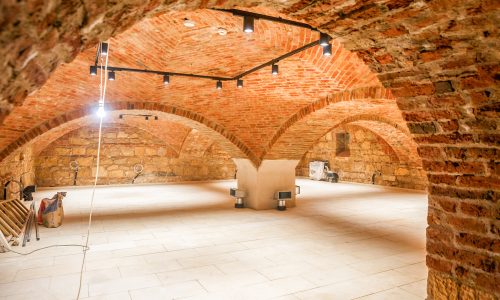As Romania continues to distance itself from its communist past, where private property was a rarity, cities like Cluj are at the forefront of a housing transition, grappling with a market that is both undeveloped and rapidly evolving.
From Ownership to Renting: A Historical Perspective
Historically, Romania boasts one of the highest home ownership rates in Europe, a legacy of the communist era's housing policies. During those years, the state allocated apartments to families, which were later privatised and sold at nominal prices after the fall of communism. This resulted in a significant portion of the population owning their homes outright, with little need or desire to rent.
However, the last few decades have seen a demographic and economic shift, particularly in urban centres like Cluj-Napoca, driven by a growth in the IT industry and a vibrant academic community. This influx of young professionals and students has spiked demand for rental properties—a demand that the city was not initially prepared to meet.
The Rental Market Today: Challenges and Risks
The rental market in Cluj-Napoca, while growing, is still in its infancy compared to more mature markets in Western Europe. One of the most significant issues is the general lack of trust between landlords and tenants, exacerbated by a history of informal rental agreements. Many landlords prefer to avoid formal contracts to evade taxes, leading to a proliferation of undeclared, handshake agreements that are not legally binding. However, this may be changing due to some changes in the law which will see undeclared incomes taxed at 70% if discovered by the authorities.
This informality poses considerable risks for tenants, who can find themselves without legal recourse in disputes. At the same time, landlords face their own set of challenges, including property damage and non-payment of rent, with few efficient legal mechanisms to address these issues promptly.
Moreover, the enforcement of existing rental laws in Romania is often inconsistent. The legal framework that governs rental agreements, tenant rights, and landlord responsibilities exists, but the practical application of these laws is fraught with difficulties, leading to a precarious rental landscape. Even when a contract exists, whether declared or undeclared, the terms are still enforceable by law, but many dread the legal process, which leads to exploitation and losses, which is particularly true for tenants, when in reality, landlords have a higher risk of legal repercussions.
Economic Discrepancies and Market Realities
Another pressing issue is the disconnect between rental prices and average incomes in Cluj-Napoca. As the city's popularity grows, so too do its living costs, particularly housing. Rental prices in central Cluj can rival those in much wealthier European cities, yet local salaries do not always match up. This disparity makes it increasingly difficult for average Cluj residents to afford renting in desirable areas, pushing them to the outskirts or into less favourable living situations.
The supply and demand imbalance also complicates matters. There is a significant demand for high-quality rental properties due to the influx of international companies and students, but the supply has not kept pace. This mismatch leads to rapid price increases and a market that is skewed in favour of landlords, at least financially.
Looking Forward: The Path to a Mature Rental Market
For Cluj-Napoca's rental market to mature and stabilise, several things need to happen. First, there must be a shift toward more formalised and legally compliant rental agreements to protect all parties involved. Second, there should be better enforcement of the law to ensure that both landlords and tenants can rely on a fair and predictable legal system.
Additionally, addressing the economic disparities that exacerbate rental issues is crucial. This may involve developing more affordable housing projects, encouraging investment in rental properties, and potentially re-evaluating local wage standards relative to living costs.
Despite these challenges, the future of Cluj-Napoca's rental market holds promise. With targeted reforms and an increasing recognition of the importance of stable and accessible rental housing, Cluj can transform its market into one that supports its dynamic population's needs while encouraging economic growth and stability.
Romania continues to evolve, and cities like Cluj-Napoca will play a pivotal role in defining the new normal for housing in a post-communist context, making it an interesting case study for both economic and urban development scholars. The path forward is complex but crucial for the city's continued prosperity and livability.



